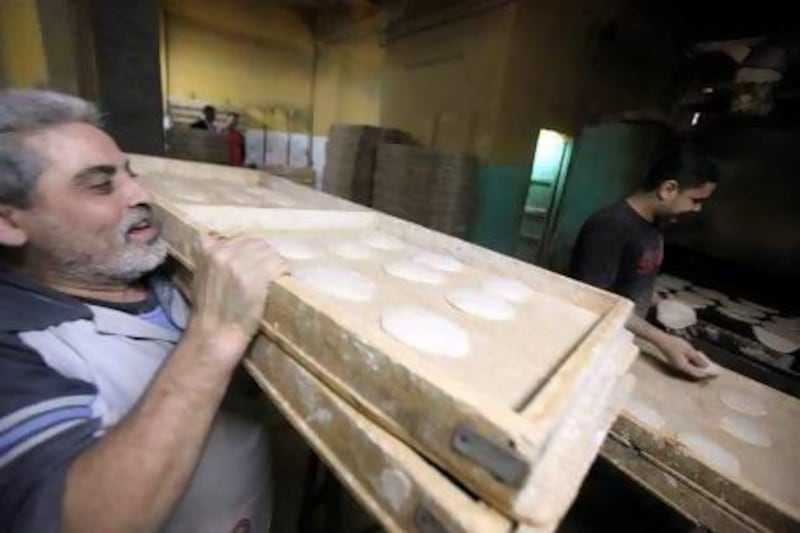CAIRO // The removal of Mohammed Morsi has boosted optimism among Egyptian businessmen who accuse the former president of bungled attempts to revive the devastated economy.
"There are a lot of good feelings among small and medium-sized businesses that things are going to get better," said Omar Shenety, head of the Egyptian investment bank Multiples Group.
Pledges of US$12 billion (Dh44bn) from the UAE, Saudi Arabia and Qatar will be crucial in the short term in preventing the faltering economy from spiralling further downwards.
Meanwhile leading businessmen such as Naguib Sawiris, whose family's Orascom group of companies is one of the biggest private-sector employers, have pledged to invest in the country "like never before".
Mohamed El Sawy, chief executive of Misr Contracting, views the appointment as interim prime minister of Hazem El Beblawi, an economist and a former minister of finance, as cause for confidence.
Mr El Beblawi has appointed Ziad Bahaa Eldin, a liberal former financial regulator, as deputy prime minister; Ahmed Galal, the managing director of the Economic Research Forum, as minister of finance; and reinstated Osama Saleh as minister of investment. The men, described by the Cairo brokerage firm Pharos Holding as the "fantastic four", are a stark contrast to the ministers in Mr Morsi's government.
Instead of veteran economists and finance professionals, Mr Morsi appointed obscure professors of Islamic finance and trusted Muslim Brotherhood members to key economic positions.
"The new appointments have made us very optimistic," Mr El Sawy said.
Nevertheless, there are fears that some of Egypt's economic problems are so big that the interim government - and the next, elected one - will be forced to make unpopular decisions that could stir up public anger again.
Mr Shenety said: "The only thing we know right now is that we don't know what will come next. If people rise up against a new government, will … the actions of the military bring more violence in Egypt?"
Mush of the new investment was not a result of confidence in economic stability but an effort to prevent the Muslim Brotherhood from rising again, he said.
"The bellwether is when real investors and multinational companies start investing in Egypt again. I don't see that happening yet."
When Mr Morsi, a former deputy leader of the Brotherhood, was elected president just over a year ago, he inherited a country in political and economic disarray. Foreign investment had all but stopped, the central bank was burning through foreign currency reserves to support the Egyptian pound, and joblessness was rapidly rising.
Facing all this, Mr Morsi promised to bring about an Egyptian "renaissance", but instead became tangled in political battles that only intensified polarisation and discontent. The Egyptian pound's value plunged, making food more expensive, and power cuts became chronic because the government was having trouble obtaining letters of credit to buy fuel products.
Mr El Sawy saw increasing bureaucratic hurdles and a continuation of the corruption that inspired millions to take to the streets in 2011 to protest against the regime of Hosni Mubarak.
"The president appointed Muslim Brotherhood members across the ministries, who made everything more difficult," Mr El Sawy said. "It was almost impossible to get a real-estate licence, for instance. The state was weak so corruption got worse, not better."
His company was forced to lay off a quarter of its employees and lower salaries to cope with the downturn.
Mr El Sawy also admits that the new government will face stark challenges in the year ahead. Most pressing is to reform the deeply unsustainable subsidy system, which doles out cheap bread and fuel and therefore restricts the government's spending on health care and education.
The answer to some of the problems, Mr El Sawy said, is new government "mega projects" that could increase employment and have a trickle-down effect on the rest of the economy.
"The problem of the Mubarak government was corruption, but the economic policies were not all bad," he said. Mubarak, too, had a propensity for large-scale public works projects.
"What we need is to reform the system, get a decent minimum wage and, of course, convince foreign investors to return to Egypt," he said.
twitter: For breaking news from the Gulf, the Middle East and around the globe follow The National World. Follow us





